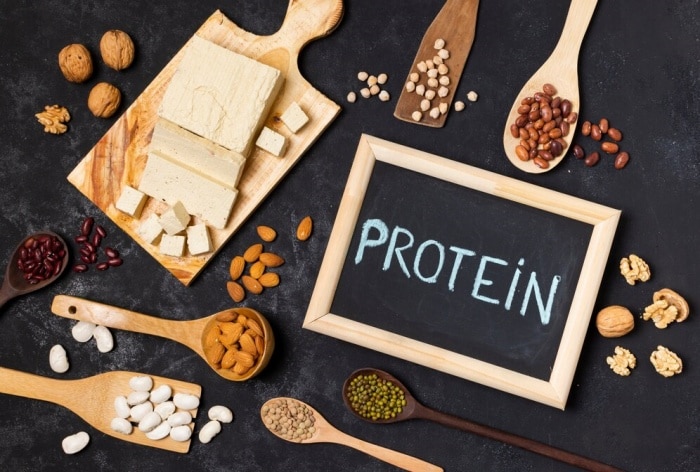Festive season binge is hard to resist and in order to maintain that healthy streak it is important to have protein in our diet, here is why.
Protein-Rich Diet: Festive season is here and we just cannot keep calm. A healthy routine may go for a toss all late-night get-together, a traditional savoury gala dinner. As the festival of lights approaches, so does the temptation of countless mouth-watering delights. Well, I have got a secret hack to help you stay on track and conquer those pesky hunger hormones and cravings- Load up on 20-30g protein for each meal. A higher protein intake increases levels of the satiety (appetite-reducing) hormones GLP-1, peptide YY and cholecystokinin, while reducing your levels of the hunger hormone ghrelin. By replacing carbs and fat with protein, you reduce the hunger hormone and boost several satiety hormones.
Protein help in the improved function of dopamine, one of the main brain hormones involved in cravings & addiction. So, make protein your festivity companion. From chana kebabs, paneer tikka and lentil dishes to yogurt and nutty delights, there are countless ways to incorporate this nutritional powerhouse into your celebration.
BENEFITS OF PROTEIN-RICH DIET
- Building and repairing tissues: Protein is the building block of muscles, bones, skin, and hair. It is also essential for repairing damaged tissues.
- Producing hormones and enzymes: Protein is used to produce hormones and enzymes, which are necessary for many bodily functions, such as digestion, metabolism, and growth.
- Transporting nutrients: Protein is involved in transporting nutrients throughout the body.
- Boosting the immune system: Protein helps to produce antibodies, which are essential for fighting off infection.
- Increased muscle mass and strength: Protein is essential for building and maintaining muscle mass and strength. This is especially important for older adults and people who are physically active.
- Improved bone health: Protein helps to build and maintain strong bones. This can help to reduce the risk of osteoporosis and fractures.
- Reduced appetite and hunger levels: Protein can help you feel fuller longer and reduce cravings for unhealthy foods. This can lead to weight loss or maintenance.
- Boosted metabolism and increased fat burning: Protein has a higher thermic effect than other macronutrients, which means that your body burns more calories digesting and metabolizing protein.
- Improved blood sugar control: Protein can help to improve blood sugar control by slowing down the absorption of carbohydrates. This can be beneficial for people with diabetes or prediabetes.
Food sources: Meat, poultry, fish, eggs, and dairy products are all good sources of protein. Beans, lentils, nuts, seeds, and tofu are also good sources of protein.

